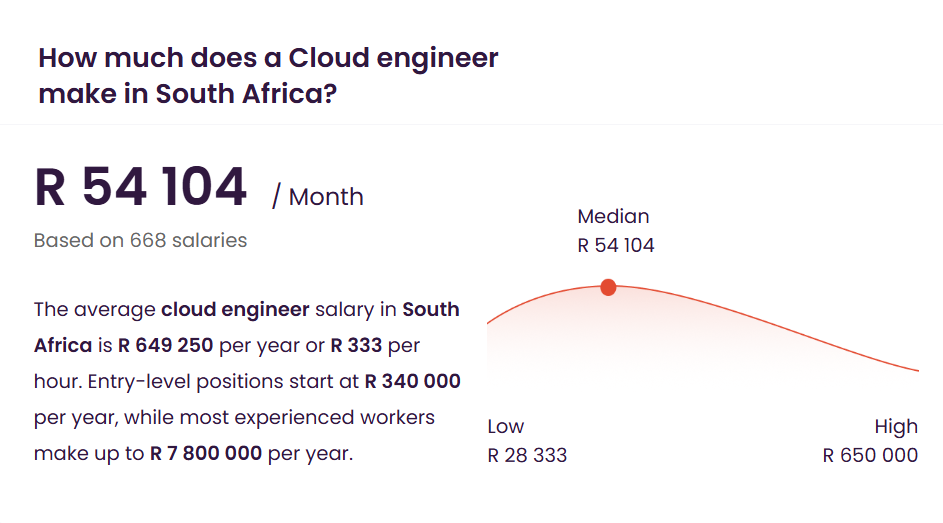Shape the Future of Technology
Ready to power the digital revolution? As a Cloud Engineer, you’ll build and manage the cloud systems that drive modern businesses, from scalable apps to secure data storage. ICM Institute’s Cloud Engineer Career Path equips you with the skills, certifications, and confidence to thrive in this cutting-edge, high-demand field—whether you’re transitioning from IT or aiming to specialize.
OVERVIEW
Why Choose a Career as a Cloud Engineer?
- Drive Innovation: Enable businesses to grow and adapt with cloud solutions as a Cloud Engineer, Systems Administrator, or Cloud Support Specialist.
- High Demand: Cloud expertise is sought after by tech giants, startups, and industries like healthcare and finance, offering endless opportunities.
Who Is This Path For?
- Tech Enthusiasts: Have some IT experience? Start here and grow into a Cloud Support Specialist role.
- Career Changers: Transition from IT support, networking, or other fields into a high-growth cloud career.
- Aspiring Specialists: Want to advance to roles like DevOps Engineer or Cloud Architect? This path builds your foundation.
Average Cloud Engineer Salary in South Africa

Source: talent.com

Academic Requirements: Grade 12
Language: Proficiency in English is required, as course materials and support are provided exclusively in English.
Skill Level: Beginner.
Tools Needed: A PC or laptop with a stable internet connection.
Commitment: Self-paced online learning.
- Cloud Engineer Cloud
- Solutions Architect
- Systems Administrator
- Cloud Support
- Specialist
- DevOps Engineer
Duration: 12 Months
Delivery Mode Mode: Online Self Paced
R113 000.00
Duration: 12 Months
Total Fees: R113 000.00
Deposit: R5 000.oo
Balance After Deposit: R108 000.00
Monthly Installment (12 Months): R9 000.00
CERTIFICATIONS
EXAM CODE N10-008 & N10-009
CompTIA Network+ validates the core skills necessary to establish, maintain, troubleshoot and secure networks in any environment, preparing you for a rewarding career in networking and cybersecurity.
What Skills Will You Learn?
- Networking Concepts
Explain basic networking concepts, including the OSI model, network appliances, applications, cloud concepts, connectivity options and more. - Network Implementations
Understand routing technologies and important factors of physical installations; configure switching technologies and wireless devices. - Network Operations
Monitor and optimize networks to ensure business continuity. - Network Security
Understand security concepts and network attacks to harden networks against threats. - Network Troubleshooting
Explain the troubleshooting methodology and address common issues related to networking, including cable, connectivity, and software problems.
Validate your knowledge and skills in network fundamentals and access, IP connectivity, IP services, security fundamentals, and more. Take your IT career in any direction by earning a Cisco Certified Network Associate (CCNA) certification.
What You Will Learn:
- Networking Fundamentals
Master the basics of networking equipment, configurations, and troubleshooting techniques to ensure reliable network performance. - IP Services
Learn how to configure routing for various IP versions, understand redundancy protocols, and interpret routing tables. - Security Fundamentals
Gain foundational knowledge of cybersecurity, including threat identification and prevention, user awareness training, and secure access setup. - Automation
Explore how automation transforms network management. Learn to work with APIs and configuration tools, and understand the difference between traditional and controller-based networking.
EXAM CODES XK0-005
CompTIA Linux+ validates the competencies required of an early career systems administrator supporting Linux systems.
What Skills Will You Learn?
- System Management
Configure and manage software packages, storage solutions, system processes, and services to ensure efficient operation of Linux systems. - Security
Apply best practices for managing permissions and authentication, implementing firewalls, and securing file systems. - Scripting, Containers and Automation
Write and run simple shell and BASH scripts, manage version control with Git, and understand orchestration and containerization fundamentals. - Troubleshooting
Analyze system behavior, identify common user, application, and hardware issues, and apply effective troubleshooting techniques.
Validate your knowledge of software development and design, including APIs, Cisco platforms, applications, security, automation, and more. Kickstart your career in network automation with the Cisco Certified DevNet Associate certification.
What Skills Will You Learn?
Software Design Basics
Develop foundational software development skills, including programming with Python, version control with Git, and working with common data formats such as XML, JSON, and YAML.
Coding for Cisco Platforms
Gain hands-on experience using APIs to interact with and automate tasks across Cisco platforms like Webex and Meraki.
Application Deployment
Learn how to securely deploy applications and implement workflow automation techniques to streamline operations.
Network Fundamentals
Understand how networking components interact, troubleshoot connectivity issues, and explore how network behavior influences application performance.
